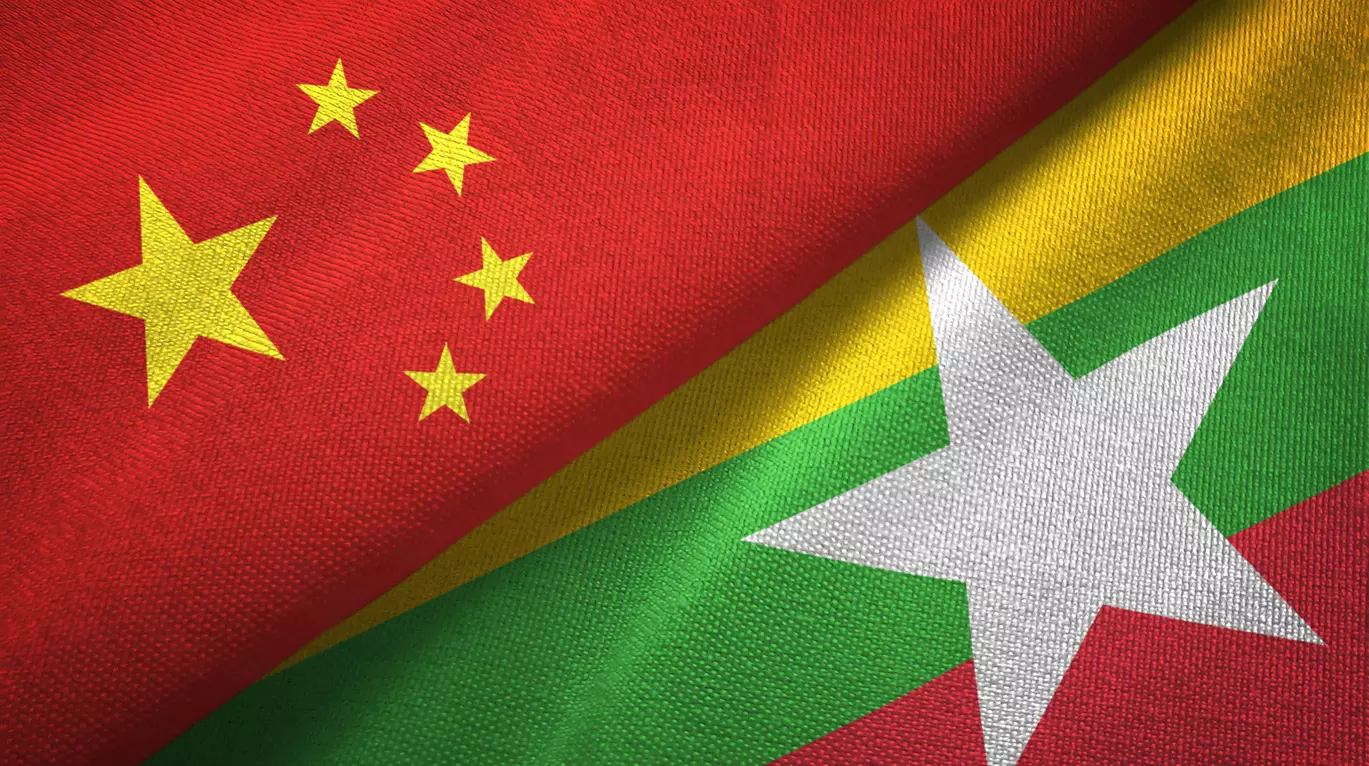
China, which seeks stability along its border with Myanmar, is the one who has been pushing for a deal between the warring rebels - the Brotherhood Alliance and the military junta. Pic: iStock
China brokers limited Myanmar ceasefire; India needs to take a cue
Chinese mediators brought Myanmar's rebel leaders and the military junta representatives together, as Beijing is worried the fighting will affect lucrative bilateral trade between the neighbours

The anti-regime ethnic Brotherhood Alliance fighting the Myanmar military junta has agreed to a three-point ceasefire agreement with the Tatmadaw (Burmese army) in the northern Shan State during China-sponsored peace talks, rebel and military sources have confirmed.
But fighting will continue in Rakhine, Chin and in the other theatres of this ongoing battle.
Chinese mediators brought the rebel leaders and the junta representatives together at Kunming, capital of Yunnan State bordering northern Myanmar.
Beijing has been worried over the 1027 offensives launched by the Brotherhood Alliance leading to the closure of entry points that must remain open and unaffected to maintain the rising momentum of the lucrative bilateral trade between the neighbours.
Three rounds of talks
During the first meeting, both sides agreed to a 20-day ceasefire from December 11 to 31 but the deal collapsed as intense clashes continued to break out across northern Shan.
The second round of talks from December 22 to 24 failed to reach any agreement and the fighting went on uninterrupted. So far, the alliance has seized 16 towns and five China-Myanmar trade zones, while the junta has lost at least 250 army bases, including a Regional Operations Command and tactical bases, in northern Shan State alone.
The third round of peace talks came after Chinese vice-foreign minister Sun Weidong met Myanmar junta boss Min Aung Hlaing on Friday (January 12) in Naypyitaw to discuss border stability among other issues.
A ceasefire
Representatives of the Ta’ang National Liberation Army (TNLA), the Arakan Army (AA) and the Myanmar National Democratic Alliance Army ( MNDAA), which make up the Brotherhood Alliance met their junta counterparts and Chinese officials in Kunming on January 10-11.
Burmese sources said that the two sides agreed to a ceasefire and that their troops would not make any further advances.
The alliance also agreed not to seize any more regime camps or towns in northern Shan State, while the junta agreed to refrain from conducting air strikes and shelling in the area.
Furthermore, the two sides also agreed to reopen vital Myanmar-China trade routes which have been taken under the control of the joint ethnic armies. The sources added, however, that a resumption in trade would only be possible after further detailed discussions between the ethnic armies, the junta and China, and after all the fighting on the ground had ceased.
“The talks focused mainly on the ceasefire. Issues like relocation of troops, bases and territory designation are still off the agenda,” the source explained.
“The deal has already come into effect," Arakan Army spokesperson Khaine Thukka told this writer on Saturday. But he insisted that Arakan Army fighters will continue their seige of Paletwa in Chin State and of the Chinese-financed deep sea town of Kyaukphyu.
Chinese pressure
Junta spokesperson major general Zaw Min Tun confirmed the ceasefire to local pro-regime media on Friday. He said some additional points would be discussed further in order to sustain the deal, and thanked China for facilitating the talks.
The alliance launched the offensive, known as Operation 1027, in late October last year vowing to uproot the military dictatorship and eradicate online scam operations on the Myanmar-China borde. The ethnic armies have taken control of a large swathe of northern Shan State from the Chinese border in the east to areas close to Mandalay Region in the west. Additional anti-regime offensives—some of them part of the alliance operation, others inspired by it—have subsequently been launched in Sagaing Region and Rakhine, Chin and Karenni (Kayah) states.
The outcome of the latest talks may be due to pressure from China, which seeks stability along its border with Myanmar.
“The deal is only effective for northern Shan. In other areas, the fighting will continue,” said the source, referring to Rakhine, Chin, Karenni, Sagaing and other areas.
Wake-up call for India
For India, which has so far adopted a wait-and-watch policy on the Myanmar crisis and pitched its faith on ASEAN to find a solution through its Five-Point Consensus, the success of the Chinese peace effort should be wake-up call. Having wholeheartedly backed the military and secured major concessions and mega-infrastructure projects, the Chinese are trying to retain the existing level of presence in a country, which gives it an outlet into the Indian Ocean through the Bay of Bengal.
It is time Delhi took a cue and send something like a Gandhi Peace Mission to mediate a more comprehensive piece deal with all the stakeholders on a national scale.
Next Story

